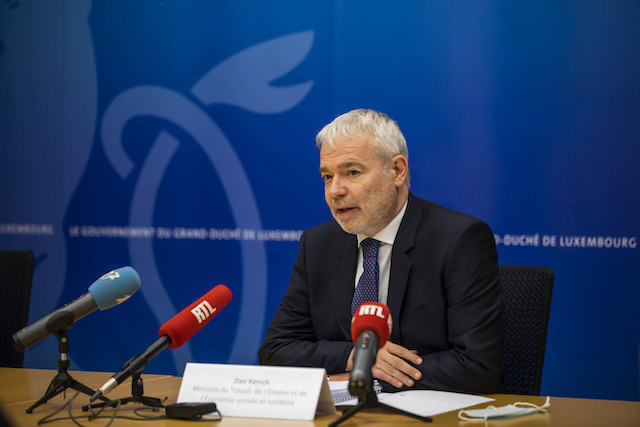Speaking to RTL on Thursday, Kersch (LSAP) said the subsidy would amount to 80% of normal earnings, capped at 2.5 times the minimum wage, similar to the sum the government contributes to salaries for people under the partial unemployment scheme.
But the grant would be limited to people who cannot work because of decisions taken by the government in the fight against the coronavirus. Businesses that can operate won’t be eligible, Kersch said.
Talks are planned with employer organisation UEL and the Chamber of Skilled Trades and Crafts (Chambre des Métiers) on 23 February to discuss further details. An important question that remains to be answered is who will pay for the replacement salary.
Kersch in the interview suggested that the cost should be shared between the government and businesses in an act of solidarity. But UEL president Michel Reckinger also on Thursday told RTL that he was surprised by Kersch’s statements, saying a salary scheme for the self-employed should be funded through the employment fund.
This fund is fed through taxpayer money and also pays for partial unemployment. Reckinger said companies did not have cash to spare to pay for Kersch’s plans.
The government early in the pandemic drew criticism for its handling of aid payments to freelancers and independents. While a generous partial unemployment programme guaranteed monthly income for company employees, the self-employed received only one-off grants or help in the shape of loans.
